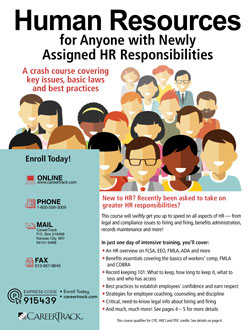HR Compliance Made Simple: Understanding the Laws and Best Practices That Protect Your Organization
Gain a firm grasp of the core federal laws every HR professional must know — including FLSA, EEO, OSHA, FMLA, ADA and HIPAA. You’ll learn not only what these laws require, but also the practical steps you can take to minimize risk, avoid liability and maintain compliance. We’ll also break down the essentials of an effective employee handbook — what must be included, what should be left out and how to clearly communicate both written and unwritten company policies. Plus, learn the training all employees should receive to promote a safe, respectful and legally sound workplace culture.
Smart Hiring and Firing: Legal Guidelines Every HR Professional Needs
Hiring and termination carry serious legal responsibilities — and potential consequences. This session covers what you legally can and cannot ask during interviews and how to conduct a compliant hiring process that brings in the right talent. You’ll receive a comprehensive hiring checklist that includes reference checks, background screenings, drug testing and other critical steps to help you make informed decisions. On the flip side, you’ll learn strategies to ensure terminations are handled fairly and legally to protect both your organization and your team.
Benefits Administration Essentials: Supporting Employees Through Informed Guidance
Explore the core responsibilities of HR in managing employee benefits — from workers’ compensation to FMLA and COBRA. You’ll discover how to effectively communicate benefit options and eligibility to employees and guide them toward choices that best meet their individual needs. This training emphasizes the role of HR as a supportive, knowledgeable resource that employees can turn to for trusted guidance.
Effective Recordkeeping and Retention: Building a Secure, Compliant HR System
Proper documentation is key to legal compliance and operational efficiency. This segment will walk you through the records you’re required to maintain — before, during and after employment — and how to structure your recordkeeping system to meet EEOC standards and audit requirements. Learn best practices for maintaining confidentiality, securing sensitive information, and managing access. You’ll leave with a clear understanding of your responsibilities and a plan for creating a streamlined, legally compliant HR documentation process.
